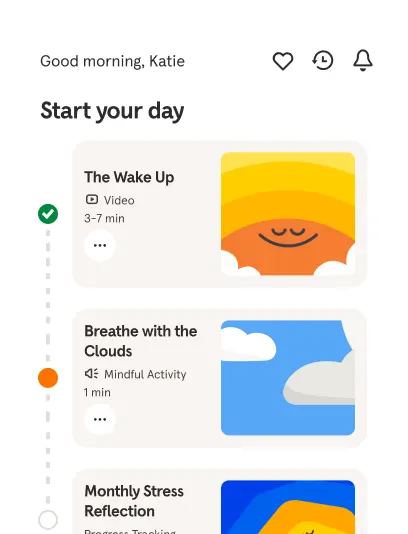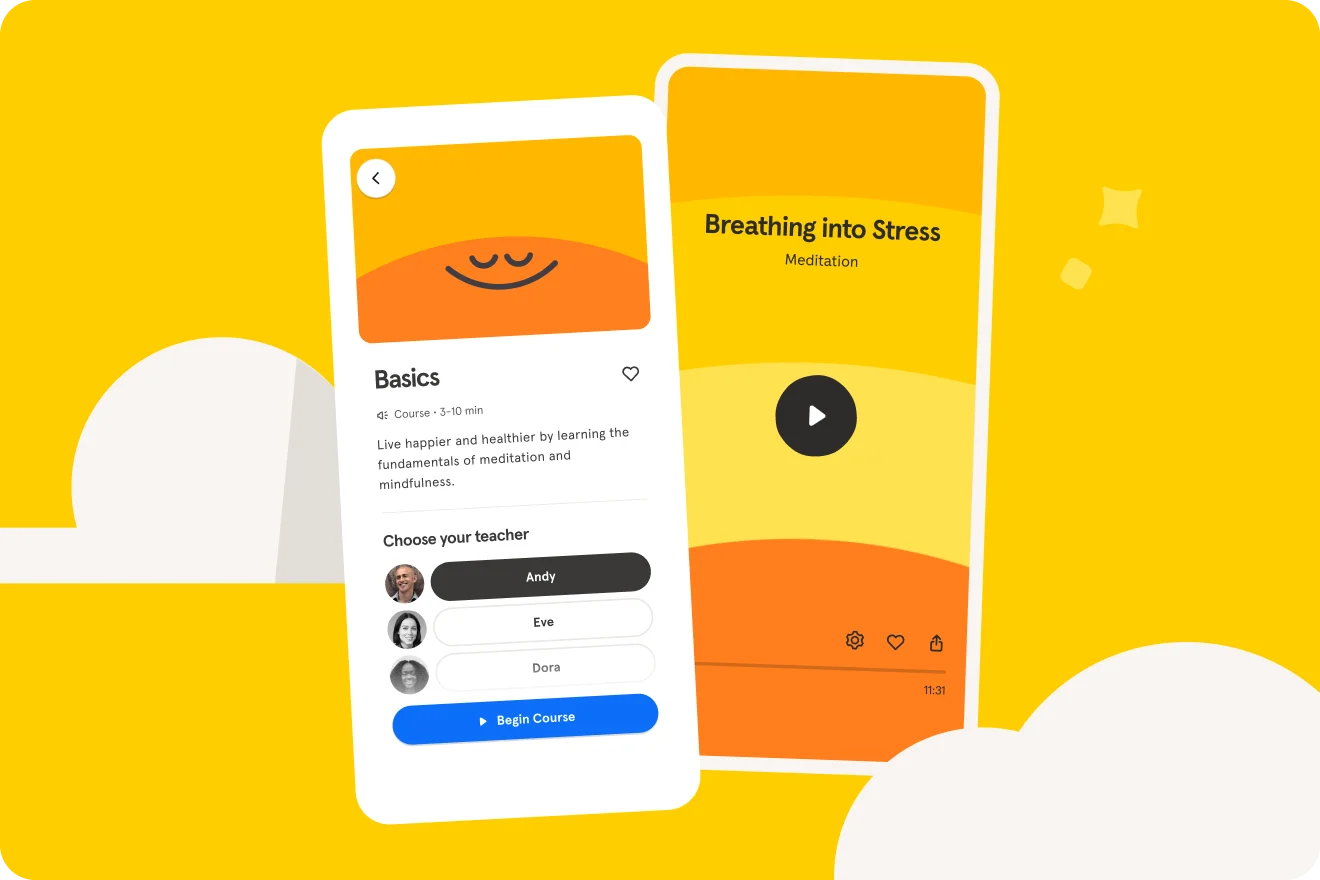How To Check In With Your Kids
Try a guided journaling practice to help your family reflect on how and when you show up as your best selves.
Try 14 days freeBetter mental health starts with Headspace. Unrivaled expertise to make life feel a little easier, using guided meditations, mindfulness tips, focus tools, sleep support, and dedicated programs.
Try 14 days free
Hi, Sam here. In this exercise, I'm going to lead you in a reflection and guided journaling practice that you can do with your entire family. It's designed to help everyone reflect on how they feel and what they need when difficult emotions arise. So let's get started. And I recommend doing this activity when you have some downtime, so when everyone's relatively calm and at ease. So have you ever read the care instructions for your clothing or items in your home? Wouldn't it be great if we all came into the world with our own set of written care instructions? Well, the good news is that we can create our own care instructions right now based on what we most need when we experience difficult moments. We're going to think about times that you've felt different, difficult emotions. Each emotion is expressed uniquely by each family member, and everyone needs something a little different to feel better. We'll then reflect on what actions and words feel supportive. We'll consider what actions you take when experiencing these emotions. Maybe you prefer to have company, be distracted, or have alone time. Maybe the emotion is energizing, so you need to exercise or move your body in some way. We'll also consider what reassuring words you most want to hear in these moments. So let's dive in, and remember to take your time reflecting. Feel free to pause at any time and come back to it. As I guide you, you may wish to close your eyes as you reflect. If you'd like, you can do this practice alone first and then invite other family members to participate with you. You can also use this as a guide for starting a conversation around feelings with your family. If you have small children, you can ask them to talk about what tends to bring up each distinct emotion, what it feels like, and then what helps them to feel better. But let's start with ourselves. So the first emotion we'll explore is sadness. So see if you can bring to mind a moment when you experienced sadness recently. I know it might not be the most pleasant thing to think about, but we're just dipping our toes into the emotion in order to remember what soothes and reassures us. And now consider what you needed or what your instinct was in that moment. Did you need a hug? Did you wanna be alone? Maybe you felt the urge to reach out to a friend. And see if you can imagine yourself naming the emotion in that moment just by saying, "This is sadness," and then offering yourself some words of compassion, like, "I see you and I'm here," "You're not alone," and, "Everyone feels sad sometimes." Practicing compassion helps us to release judgment and shame around this feeling. And now feel free to pause and write down anything that comes to mind around what you need when you're feeling sad. You may...
Details
About your teachers
- More about Andy
A former Buddhist monk, Andy has guided people in meditation and mindfulness for 20 years. In his mission to make these practices accessible to all, he co-created the Headspace app in 2010.
- More about Eve
Eve is a mindfulness teacher, overseeing Headspace’s meditation curriculum. She is passionate about sharing meditation to help others feel less stressed and experience more compassion in their lives.
- More about Dora
As a meditation teacher, Dora encourages others to live, breathe, and be with the fullness of their experiences. She loves meditation’s power to create community and bring clarity to people’s minds.
- More about Kessonga
Kessonga has been an acupuncturists, therapist, and meditation teacher, working to bring mindfulness to the diverse populations of the world.
- More about Rosie
Rosie Acosta has studied yoga and mindfulness for more than 20 years and taught for over a decade. Rosie’s mission is to help others overcome adversity and experience radical love.

Your lifelong guide to better mental health
Stress, sleep, and all the challenging emotions — care for your mind with the everyday mental health app that's shown to make a difference.
Try 14 days free
Look after your mind
Proven guided meditations and programs to help you stress less, sleep more soundly, and better navigate life’s challenges

Science-backed
Studies show that using Headspace for 30 days can reduce stress, increase resilience, and improve overall well-being

Explore 1000+ expert-led exercises
Access our library of meditations, breathing exercises, and guidance videos for stress, sleep, focus, everyday anxiety , parenting, and more.
Member reviews
Hear from some of our members
Your app brings so much peace and tolerance to our home.
Rachel
UK
Changing my thoughts has allowed me to change my life.
Davide
London
The stress and loneliness courses … taught me how to comfort myself.
Alicia
Canada
Headspace provides me with … a connection to myself, and a disconnection from negative thoughts, feelings, and sensations.
Keri
UK
Related to 'How To Check In With Your'
- © 2024 Headspace Inc.
- Terms & conditions
- Privacy policy
- Consumer Health Data
- Your privacy choices
- CA Privacy Notice

